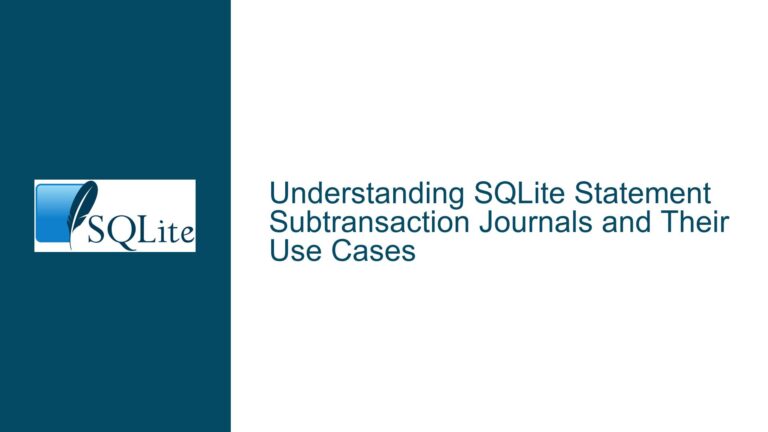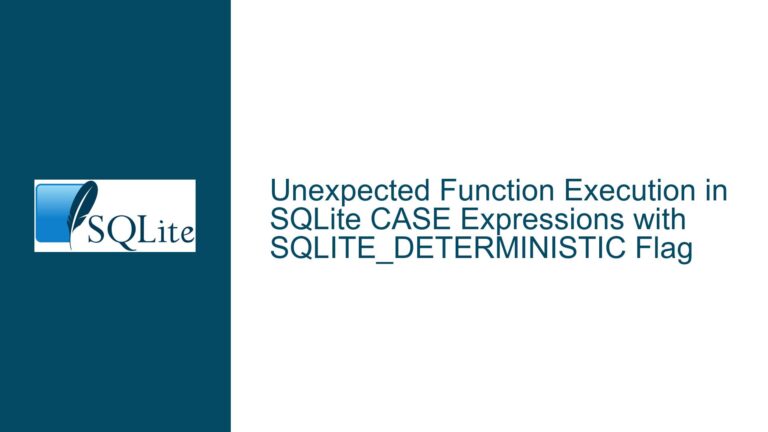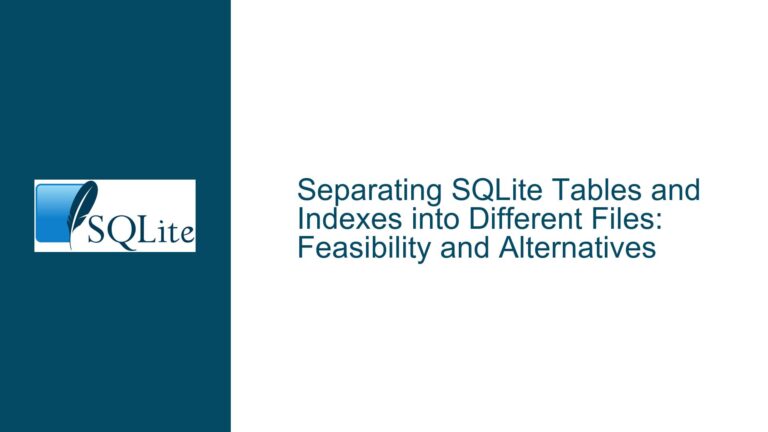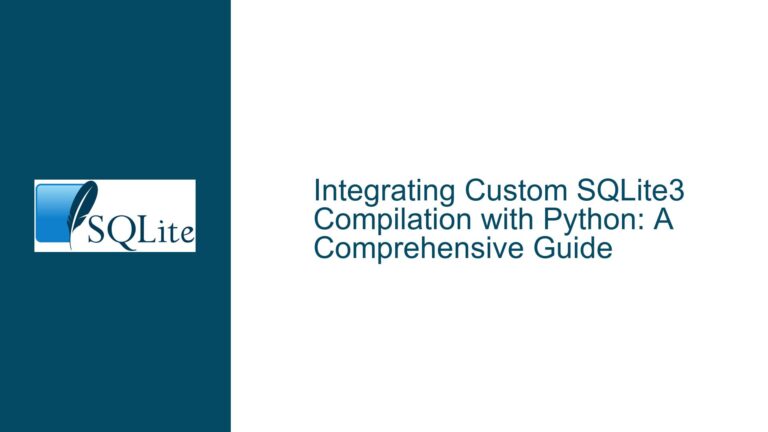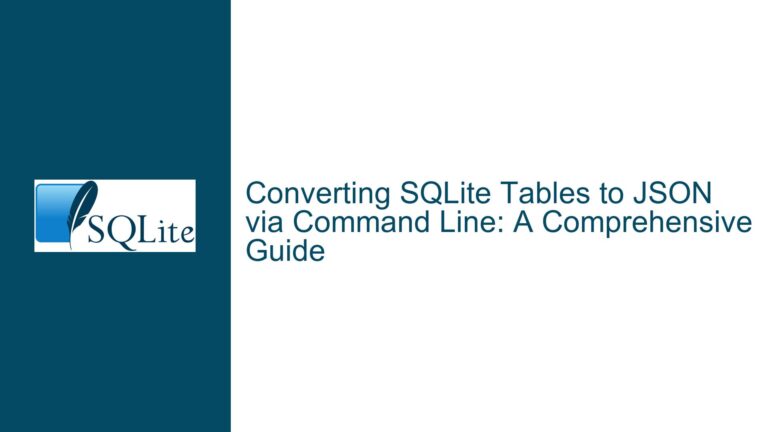SQLite CTE Enhancements: GENERATED and MATERIALIZED Keywords
Proposed Non-Standard CTE Syntax and Its Implications The discussion revolves around a proposed enhancement to SQLite’s Common Table Expressions (CTEs) by introducing new keywords: GENERATED and MATERIALIZED. These keywords aim to provide more control over how CTEs are evaluated and optimized by the query planner. The primary goal is to ensure that CTEs can act…

